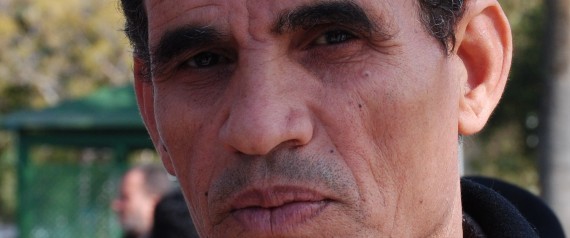Guest Post: Brahim El Guabli introduces Tunisian poet Mohamed Saghir Ouled Ahmed
Special from the Maghreb

Poetics of Sedition in the Maghreb: Mohamed Sghir Ouled Ahmed
Mohamed Saghir Ouled Ahmed (b. 1955) is probably Tunisia's most prominent Arabic poet today. His birth in the southern city of Sidi Bouzid, which was the breeding ground of the December 2010 Tunisian Revolution, further consecrated his status as Tunisia's contemporary, “conscience of the nation.” During his long career, which he began at the age of fourteen, Ouled Ahmed produced at least five collections of poetry: The Rhapsody of the Six Days (1988), But I Am Ahmad (1989), I Have No Problem (1989), The South of the Water (1991) and The Will (2000). Building on his deep involvement in the Tunisian revolution, he recently published his (poetico)diaries with the evocative title The Poetic Leadership of the Tunisian Revolution (2013). While his literary and poetic experience has received great acclaim throughout the Maghreb and the Middle East, the bulk of his poetic output remains inaccessible to readers in English. In addition to composing poetry, Ouled Ahmed has also forecefully advocated for the renewal of the language of poetic criticism in Arabic. Finally, before the Ministry of Culture under Ben Ali ousted him from its leadership, Ouled Ahmed conceived and established the House of Poetry (Bayt al-Shir'r), which is a concept that has been successfully adopted in North Africa and the Middle East.
His poetic and literary experience is too variegated and multilayered to be totally covered in this short piece. However, a seminal aspect of his work remains his early deliberate choice to play the role of the seditionist poet in a socio-political context where the cost of oppositionality to political or religious leadership held dire consequences for the person engaging in it. In Ouled Ahmed's definition, poetry is inherently subversive vis-à-vis authority:
What’s poetry at the end?
Let’s say…
It is a linguistic guessing
Whose goal
Is to help authority collapse
(From The Will page 20.)
While attacking political power and poking fun at its symbols are fixtures of his poems, Ouled Ahmed’s lambasting of the sacred seems to complement his biting criticism of the hegemonic structures. Fear of God and other deity-like powers precludes the achievement of freedom and human dignity. That is why in “I Have No Problem” he democratizes access to God without intercession:
Alone, I will go see God
I will tell him:
My Beloved
I want a place other than earth
fire
and the locked paradise
(From I Have No Problem. )
In the same vein, his poem, "My God" is a scathing lampoon of the Islamist discourse in post-revolution Tunisia. The poet combines grievance and appeal in his address to God to expose the countless abuses committed in his name.
Given his progressive politics, Ouled Ahmed misses no opportunity to foreground the contradictions in the ideologies of the religious parties. Therefore, poetry in his understanding is a battleground where he wages a relentless war against authoritarianism, social exclusion and religious extremism. The fight, however, the poet seems to say, would be meaningless if people’s minds remain shackled and their agency to act freely in the world is usurped.
- Brahim El Guabli is a PhD student in Comparative Literature at Princeton University. He is particularly interested in Arabic, Berber and Francophone literatures of Africa (and the diaspora) and the Middle East. H investigates the relationship between prison narratives, self-writing and the un-silencing of traumatic pasts. Brahim is also interested in translation both theory and practice.
Good news from Africa